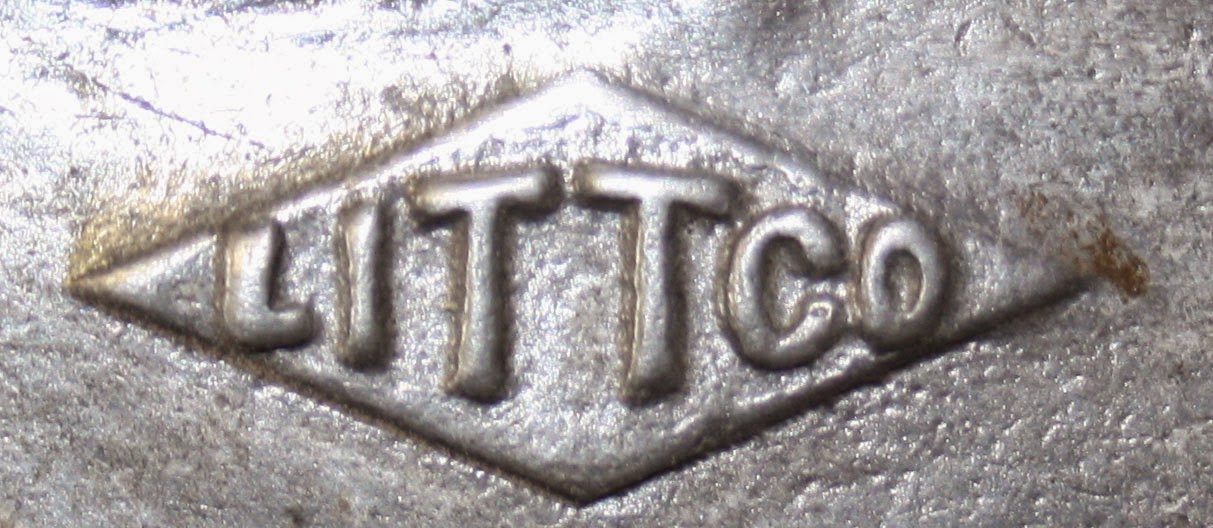One of my vices is vises: The Littlestown Hardware & Foundry Company, Littlestown, Pennsylvania
Above, a handy little vice on my woodworking bench. Below, a large C-clamp made by the same firm:
The Littlestown Hardware and Foundry Company was founded in 1916 by Luther D. and Emory H. Snyder in, well, Littlestown, Pennsylvania. Happily, they're still around and according to their website, they used to make bench vises, hammers, bookends, fire place tools, doorstops and other castings. During World War II, they contributed to the war effort through the production of hand and rifle grenades, bomb plugs and anti-personnel mines. They moved into the casting of aluminum in 1939. They're now known as Littlestown Foundry, Inc., and also as Littco, and they produce commercial aluminum castings. Sadly, vises are no longer included in their product line. Their website has a history section with some videos that include the vise production story





8 comments:
I've been reluctant to bring this up, since 'vice' is an accepted alternative spelling of vise', and perhaps the author simply favours the 'vice' spelling for his own good reason.
However, I maintain that the words 'vice' and 'vise' stand for two very different things, and that the difference ought to be acknowledged and kept.
Hence, I respectfully submit this:
http://rougeriverworkshop.blogspot.ca/2011/07/vicevise.html
Point well taken. I don't know how I've managed to misspell this word for all this time. It's embarrassing. I've now changed as many instances as I can in the blog (and there were quite a few!) but I can't promise to have corrected them all. Thanks for taking the time to educate us on this!
Not so fast! http://grammarist.com/spelling/vice-vise/
Vice vs. vise
In the U.S., the word for the clamping tool comprising two jaws closed and opened by a screw or lever is spelled vise. Outside American English, the vise spelling rarely appears. The gripping tool is instead spelled vice. This word of course has several other meanings in all varieties of English, including (1) immorality, and (2) an undesirable habit. For these senses, vice is so spelled even in the U.S.
Although vise is now an American spelling, it is old. The word for the tool has origins in the Latin vitis, meaning vine, and over the centuries it has been used to describe many spiraling things, including staircases and screws. For all the word’s spiral-related senses, vise has been a common secondary spelling for many centuries. That spelling usually gave way to vice, however, until the early 19th century, when it was put to use in American industrial writing. By later in that century, vise was standard American English for the tool and related senses.
Fair point, and my Concise Oxford Dictionary concurs that 'vise' is the American form.
I guess this is one of those very few cases where I'm inclined to go along with the Yanks.
The etymology here -- http://www.thefreedictionary.com/vise -- seems to suggest that 'vise' was the original form. It makes sense to me to retain it for the sake of clarity, and so that one doesn't picture ladies-of-ill-repute and illicit substances every time one reads of a work-holding apparatus. The primary sense of 'vice' is, after all, "Evil (esp. grossly immoral) habit or conduct".
Further to vice/vise:
If you're looking for a vise on Kijiji, you'd best search for both spellings; there are two separate listings --
http://www.kijiji.ca/b-tool/gta-greater-toronto-area/vices/k0c110l1700272
and
http://www.kijiji.ca/b-tool/gta-greater-toronto-area/vises/k0c110l1700272
- - -
The 'vises' listing is way longer than the 'vices' listing.
Surprising since, human ingenuity being what it is, there are far more types of vices than there are types of vises.
The vise you have pictured is the one that I also have on my work bench. I inherited it from my dad who passed away in 1997. I use it several times a week. I live in west Tennessee
Post a Comment